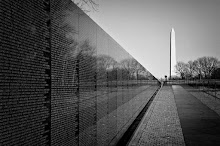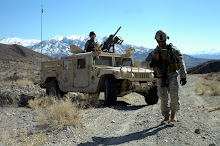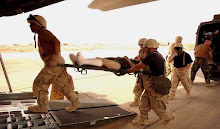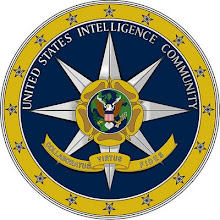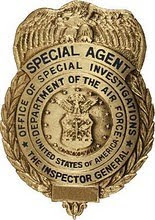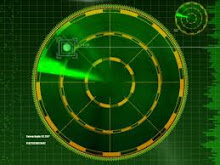By Steve Hammons
(A version of this article was posted 4/6/15 on the CultureReady blog of the U.S. Defense Language and National Security Education Office.)
The U.S. Navy’s Office of
Naval Research (ONR) has begun a four-year project to identify, understand and
use “intuitive decision-making” and what is being termed “implicit learning.”
Based on other formal
research and anecdotal reports over the years, the ONR study, called “Enhancing Intuitive Decision Making Through Implicit
Learning,” will attempt to determine how rapid or apparently spontaneous
intuitive impressions can be used by military personnel and others.
Often referred to as “gut
instincts,” “hunches” and the “sixth sense,” scientific research indicates that
these can be legitimate sources of accurate information and understanding. Intuition
may be simply acquiring and processing information in different ways,
researchers indicate.
Valid impressions can be
arrived at via various kinds of information coming to us through normal sensory
perception, absorption of past training and experience, our unconscious minds,
our bodies and even somewhat mysterious areas of quantum physics, according to
some research.
When these potential sources
of information and understanding are used (often in combination) military
personnel may be better-prepared to quickly integrate and process information,
gain improved “situation awareness” and make rapid, effective decisions, ONR
and other researchers point out.
LARGER IMPLICATIONS
According to a June 2014
article in the Navy Times, Marine Corps Times, Army Times and Air Force Times, “the new four-year, $3.85 million program to
explore the phenomenon is a joint effort among ONR, DSCI Mesh Solutions,
Charles River Analytics, Defense Group Inc., Northwestern University,
University of California-Los Angeles and Massachusetts Institute of Technology.”
In a March 2014 media release
from the ONR, more details about the new project were explained. “ONR has embarked on a four-year basic research program
to enhance intuitive decision making through implicit learning. A team of
scientists will study factors such as memory and perception to better
understand how decisions are made and whether there are ways to improve
premonition through training,” according to the press release which was also posted on the Navy News Service website.
The media
release quoted Lt. Cmdr. Brent Olde, ONR Warfighter Performance Department's
division deputy for human and bio-engineered systems: “A seasoned warfighter develops
a gut instinct through experience.”
Olde was
also quoted as explaining, “If we can characterize this intuitive
decision-making process and model it, then the hope is to accelerate the
acquisition of these skills through simulation and scenarios; thus, providing
our sailors and Marines with years of experience in a matter of days and
greatly improving their ability to make split-second decisions.”
Also
included in the ONR press release were statements from Dr. Peter Squire,
program officer for human performance, training and education in ONR’s
Expeditionary Maneuver Warfare and Combating Terrorism Department.
Squire said, “Ultimately,
this is about sailors and Marines being able to harness their gut instincts in
situations where they need to act quickly. But first, we have to understand
what gives rise to this so-called ‘sixth sense.’ Can we model it? Is there a
way to improve it through training?”
The article
published in the Military Times also reported additional comments by
Squire about stories of troops in combat who took actions based on
intuitive-type perceptions: “These are
quick decisions made unconsciously. Troops can’t tell you what made them stop
or act, but we believe something different in what is usually a regular
environment triggered a reaction.”
“At ONR, we push science to support our warfighters, to make sure they are equipped for a fair fight. But this also has
implications for society at large,” Squire was quoted as saying.
The Military Times article included
the following: “According to Squire, if the researchers understand the process,
there may be ways to accelerate it – and possibly spread the powers of
intuition throughout military units. The research could have applicability well
beyond the military.”
The same article summarized the critical
importance of these kinds of perceptions. “Troops often return from patrols
with stories of how they survived intact through some hairy situation because
they had a premonition something was amiss.”
PREVIOUS
RESEARCH
In recent years the U.S. Army
has also initiated research into hunches and intuition. Those studies found
that two kinds of American troops in combat areas seemed to be better able to
detect hidden improvised explosive devices (IEDs).
One type included those
troops raised in rural areas in a natural environment and who were involved in hunting and similar activities.
They seemed to have better instincts and were possibly more alert about dangers
around them. The other category was the Army soldier or Marine who grew up in
tough urban settings where they had to be aware of danger from crime and
assault.
This type of research is not
new. Universities and previous defense-related research going back to the 1970s
explored and utilized unconventional, alternative and complementary kinds of
perception that humans are believed to possess naturally, and can be enhanced through training.
Probably the most well-known
of these efforts is now referred to as Project STAR GATE. That program
developed methods to attempt to acquire accurate and reliable information using
human consciousness.
Though this research-and-operational program appears to be
more forward-leaning in its goals and methods than the new ONR implicit
learning project, there seem to be several areas of significant overlap.
Based on the successes of
Project STAR GATE, a former Navy SEAL officer developed the concept of “transcendent
warfare” that he explored in a graduate-level research paper. The transcendent warfare model involves learning more about new discoveries related to human
perception and using that knowledge in appropriately robust ways. The ONR research project also appears to dovetail with transcendent
warfare ideas.
The validity of different (though
complementary) modes of human perception, and processing those perceptions, appears to
be well-established by much previous research.
The new ONR project reportedly attempts to further
explore these abilities and add to existing training and education efforts
about them.
For more information see:












